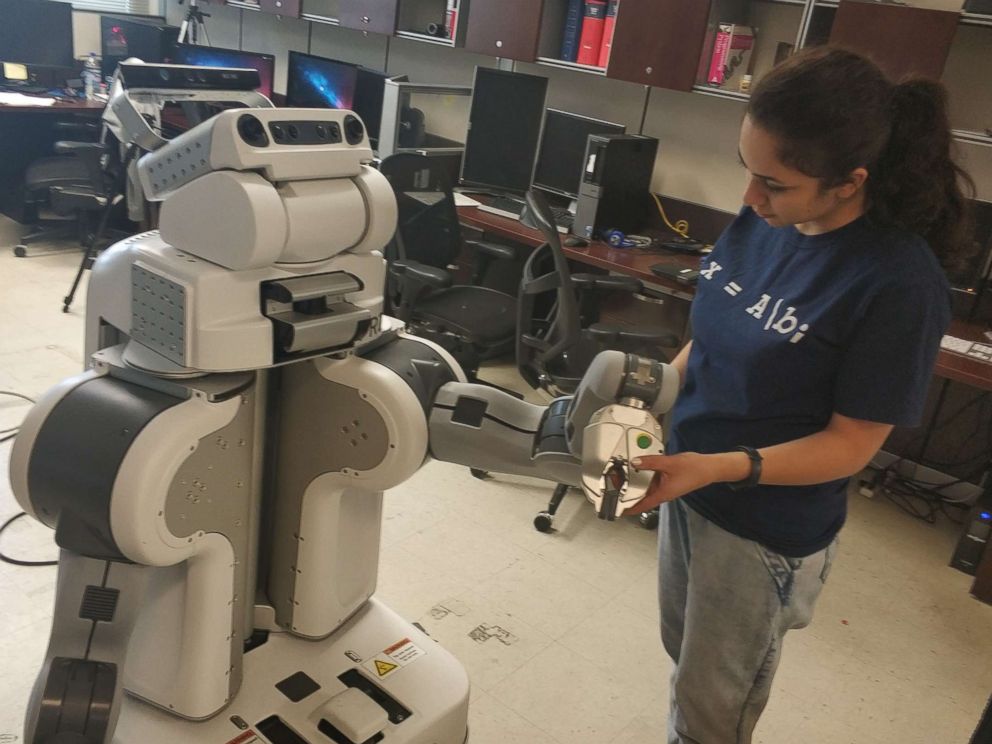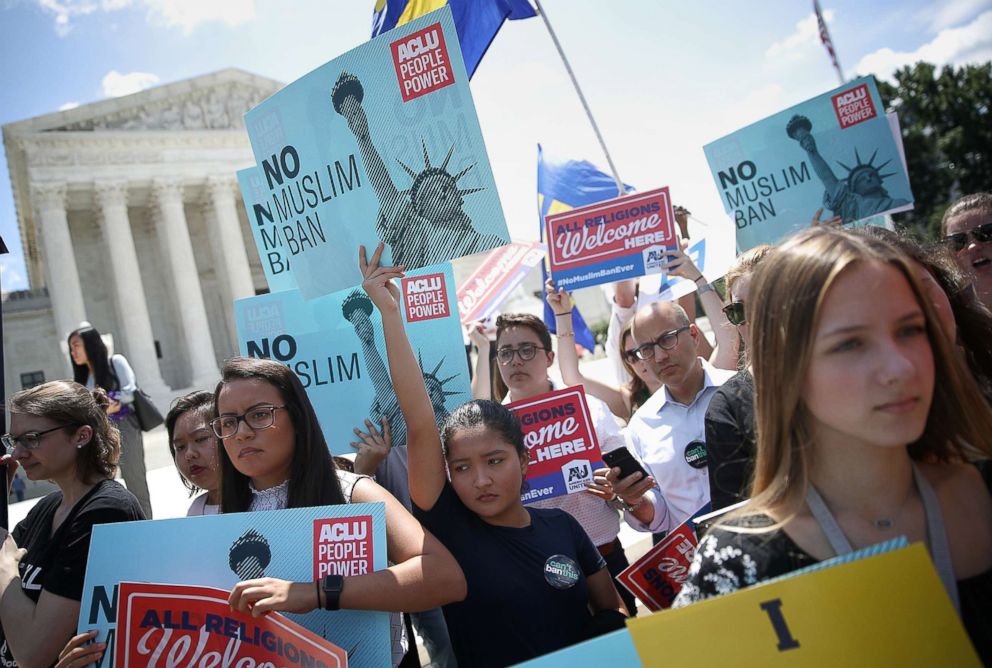Supreme Court decision to uphold travel ban causes, anxiety, uncertainty for international students, advocates say
Advocates and universities are working to help international students.
The recent Supreme Court decision upholding the Trump administration's controversial travel ban has students and institutions on edge, advocacy groups say, because of the lasting and crippling effect it could have those seeking education in the United States.
“The Muslim ban will deter international students from applying to schools in America,” said Ahmed Mohamed, trial attorney of the Council on American-Islamic Relations. “In turn, the United States and Americans will be deprived of talent that is instrumental to a thriving world.”
In a 5-4 decision, the Supreme Court ruled last week to uphold the third version of the ban, an executive order that restricts travel from Iran, Libya, North Korea, Somalia, Syria, Venezuela and Yemen to the U.S.
The Supreme Court called the order "squarely within" President Trump’s power after federal judges from Hawaii and Maryland filed injunctions to temporarily suspend the ban for majority-Muslim countries.
Roya Salek, 29, who is pursuing her Ph.D. in computer science and engineering at the University of Nevada, Reno, emigrated from her native Iran on an F1 visa, which allows her to study in the United States.

But Salek's F1 -- which permits her only one-entry in the U.S. -- requires she re-apply for another visa if she were to leave the U.S. for any reason. That means Salek can't leave until she finishes her studies in about six years -- and, because Iran is now on the list of countries included in the travel ban, her parents can't visit her, either.
“This is a need for me. I need to see my parents at least once a year,” Salek said. “When I came here I [couldn’t] go back and that was hard but I was hoping they could visit me. Now, that hope is also gone. That is even harder for me.”
Salek says she is unable to fully focus on her studies knowing she will not see her friends and family for years. She has even considered dropping her program in the U.S. to find a new program elsewhere or ultimately move back to Iran.
“This is your life and you get a good education [in the U.S.] but you lose a lot [of] things,” Salek said. “Maybe that’s not worth it. When I [came to the U.S.] I was not thinking like that. Doing the research for me was worth it, now politics is making me think otherwise.”
The ban seems to be preventing students from coming to the United States in the first place, too. In Trump v. Hawaii, the court filing cited data from the Department of Justice stating in the first three months of 2018, only 258 student visas were issued to scholars from Iran (189), Libya (29), Somalia (0) and Yemen (40).
“That is less than a quarter of visas compared to 2016 visa levels during that time,” Mohamed said. “We expect that trend to continue. The effect [of] the ban on an individual will vary depending on the country.”
The State Department said in a statement to ABC News that for international students in designated countries, a consular officer "will determine whether an applicant otherwise eligible for a visa is exempt from the Proclamation or, if not, may be eligible for a waiver under the proclamation allowing for the issuance of a visa."
The department added that anyone who had a valid F1 visa before the ban went into effect would not be affected. The ban applies, the statement read, to those "affected nationals who were outside the United States on the applicable effective date or who did not have a valid visa on the applicable effective date."

Institutions like The New School in New York, which, according to a study by the U.S. News and World Report, ranks among the top schools taking in international students, including from those countries included in the ban, says it is working with affected students.
Alexandra Chow, associated director of international student and scholar services at the New School, told ABC News the institution has reached out to students “singled out” by the ban and is working to address their questions and concerns.
“Because of the fluidity of the situation, we are recommending that international students and scholars from the countries listed in the ban exercise caution in making travel plans, particularly if they will need to renew their nonimmigrant visa during their time abroad,” Chow said. “Even if the U.S. embassy is issuing nonimmigrant visas, applicants may experience additional scrutiny and delays in visa processing.”
Mohammed says advocacy groups will continue to fight the ban.
“American Muslims are hopeful that, like previous atrocities committed in the name of national security, we will prevail,” Mohammed said. “American Muslims will continue to fight for Muslim in the courts, in Congress, and in the streets.”



